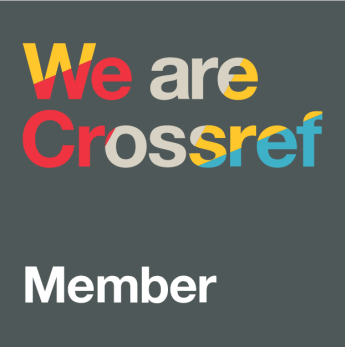Self-concept Profiles in Vocational High School Students Level
DOI:
https://doi.org/10.22460/quanta.v8i2.4700Keywords:
Self-Concept, Students, Vocational High SchoolAbstract
The purpose of this study was to determine the description of the self-concept of second-grade students at SMK N 6 Semarang. The research method used is descriptive quantitative with survey research type. The number of samples was 70 students. Sampling using a random sampling technique. The results of the research on the description of the self-concept that has a high self-concept amounted to 10 students with a percentage of 14%. Students who have a moderate self-concept amounted to 49 with a percentage of 70% and students who have a low self-concept or negative self-concept amounted to 11 with a percentage of 16%. The results of this study are presented for guidance and counseling teachers in schools to be used as a basis for efforts to provide guidance and counseling services to students to increase positive self-concept at SMK N 6 Semarang.
References
Alini, A., & Meisyalla, L. N. (2021). Gambaran Kejadian Body Shaming Dan Konsep Diri Pada Remaja Di Smkn 1 Kuok. PREPOTIF: Jurnal Kesehatan Masyarakat, 5(2), 1170-1179. https://doi.org/10.31004/prepotif.v5i2.2371
Almaida, D. S., & Febriyanti, D. A. (2019). Hubungan antara konsep diri dengan kematangan karir pada siswa kelas xi smk yayasan pharmasi semarang. Jurnal Empati, 8(1), 87-92. https://ejournal3.undip.ac.id/index.php/empati/article/view/23579
Apriliyanti, A., Mudjiran, M., & Ridha, M. (2017). Hubungan konsep diri siswa dengan tingkah laku sosial siswa. Jurnal Educatio: Jurnal Pendidikan Indonesia, 2(2), 25-29. http://dx.doi.org/10.29210/12016262
Asri, D. N. (2020). Faktor-faktor yang mempengaruhi terbentuknya konsep diri remaja (studi kualitatif pada siswa SMPN 6 Kota Madiun). Jurnal Konseling Gusjigang, 6(1). https://doi.org/10.24176/jkg.v6i1.4091
Astuti, R. D. (2014). Identifikasi Faktor- Faktor yang Mempengaruhi Konsep Diri Siswa Sekolah Dasar Negeri Mendungan 1 Yogyakarta. Skripsi. Universitas Negeri Yogyakarta. https://eprints.uny.ac.id/14425/
Desmita. (2014). Psikologi Perkembangan Siswa. Bandung: PT Remaja Rosdakarya.
Dewi, Y. P., & Mugiarso, H. (2020). Hubungan antara konsep diri dengan efikasi diri dalam memecahkan masalah melalui konseling individu di SMK hidayah Semarang. JURNAL EDUKASI: Jurnal Bimbingan Konseling, 6(1), 29-40. http://dx.doi.org/10.22373/je.v6i1.5750
Hardiyanti, P. T., & Nuryanta, N. (2016). Pengaruh religiusitas lingkungan sekolah terhadap konsep diri siswa-siswi di MAN Pakem Sleman. Hisbah: Jurnal Bimbingan Konseling dan Dakwah Islam, 13(2), 85-101. https://doi.org/10.14421/hisbah.2016.132-06
M. Asy’ari, dkk. (2014). Konsep Diri, Kecerdasan Emosi Dan Motivasi Belajar Siswa. Pesona, Jurnal Psikologi Indonesia : Vol 3 No.1, Hal : 83-89. Asy’ari, M., Ekayati, I. N., & Matulessy, A. (2014). Konsep diri, kecerdasan emosi dan motivasi belajar siswa. Persona: Jurnal Psikologi Indonesia, 3(1), 83-89. https://core.ac.uk/download/pdf/291850178.pdf
Muslifar, R. (2015). Efektifitas Pelaksanaan Layanan Bimbingan kelompok Dalam Mengembangkan Konsep Diri Positif. Jurnal Penelitian Tindakan Bimbingan & Konseling, 1(2). https://www.i-rpp.com/index.php/jptbk/article/view/244
Nisrima, S., Yunus, M. N., & Hayati, E. N. (2017). Pembinaan perilaku sosial remaja penghuni yayasan islam media kasih kota Banda Aceh. Jurnal Ilmiah Mahasiswa Pendidikan Kewarganegaraan, 1(1). https://jim.usk.ac.id/pendidikan-kewarganegaraan/article/view/29713
Novilita, H., & Suharnan, S. (2013). Konsep diri adversity quotient dan kemandirian belajar siswa. Jurnal Psikologi Tabularasa, 8(1). https://doi.org/10.26905/jpt.v8i1.218
Nuraini, N., Kusuma, F. H. D., & Rahayu, W. (2018). Hubungan interaksi sosial dengan kesepian pada lansia di kelurahan tlogomas kota malang. Nursing News: Jurnal Ilmiah Keperawatan, 3(1). https://doi.org/10.33366/nn.v3i1.832
Nurliana, Y. (2015). Konsep Diri Remaja (Siswa Kelas X SMA). Psikologi dan Kemanusiaan, 440-445. Universitas Muhammadiyah Malang. https://mpsi.umm.ac.id/files/file/441-445%20Yetti%20Nurliana.pdf
Purnaningtyas, L. F., & Masykur, A. M. (2015). Konsep diri dan kecenderungan bullying pada siswa SMK Semarang. Jurnal Empati, 4(4), 186-190. https://ejournal3.undip.ac.id/index.php/empati/article/view/14317
Rakhmat, J. (2018). Psikologi Komunikasi. Bandung: Simbiosa Rekatama Media.
Retnowati, Y. (2021). Pola Komunikasi Dan Kemandirian Anak: Panduan Komunikasi Bagi Orang Tua Tunggal. Mevlana Publishing.
Saputro, K. Z. (2018). Memahami ciri dan tugas perkembangan masa remaja. Aplikasia: Jurnal Aplikasi Ilmu-Ilmu Agama, 17(1), 25-32. https://doi.org/10.14421/aplikasia.v17i1.1362
Siwi, I. H. (2020). Meningkatkan Konsep Diri Siswa SMA Melalui Bimbingan Kelompok. Jurnal Konseling Gusjigang, 6(2). https://doi.org/10.24176/jkg.v6i2.6357
Sugiyono, S. (2017). Metode Penelitian Kuantitatif, Kualitatif, dan R&D. Bandung: CV. Alfabeta
Sugiyono, S. (2023). Metode Penelitian Kuantitatif, Kualitatif, dan R&D. Bandung: CV. Alfabeta
Suryani, I., & Hutabarat, R. (2020). Konsep Diri Siswa di MAN 3 Medan. Al-Mursyid: Jurnal Ikatan Alumni Bimbingan dan Konseling Islam (IKABKI), 2(1). http://dx.doi.org/10.30829/mrs.v2i1.715
Tohirin. (2013). Bimbingan dan Konseling di sekolah dan Madrasah. Jakarta: PT. Raja Grafindo.
Yunistiati, F., Djalali, M. A. A., & Farid, M. (2014). Keharmonisan keluarga, konsep diri dan interaksi sosial remaja. Persona: Jurnal Psikologi Indonesia, 3(01). https://core.ac.uk/pdf/aaa229330533.pdf
Zulkhairi, Z., Arneliwati, A., & Nurchayati, S. (2018). Studi Deskriptif Kualitatif: Persepsi Remaja Terhadap Perilaku Menyimpang. Jurnal Ners Indonesia, 8(2), 145-157. https://doi.org/10.31258/jni.8.2.145-157
Downloads
Published
How to Cite
Issue
Section
License
Copyright (c) 2024 Ani Kurniati, Jovita Juliejantiningsih, Sri Wahyuni

This work is licensed under a Creative Commons Attribution-ShareAlike 4.0 International License.
Quanta: Jurnal Kajian Bimbingan dan Konseling dalam Pendidikan is licensed under a Creative Commons Attribution-ShareAlike 4.0 International License. Authors who publish with the Quanta Journal agree to the following terms:
- Authors retain copyright and grant the journal right of first publication with the work simultaneously licensed under a Creative Commons Attribution License that allows others to share the work with an acknowledgment of the work's authorship and initial publication in this journal.
- Authors are able to enter into separate, additional contractual arrangements for the non-exclusive distribution of the journal's published version of the work (e.g., post it to an institutional repository or publish it in a book), with an acknowledgment of its initial publication in this journal.
- Authors are permitted and encouraged to post their work online (e.g., in institutional repositories or on their website) prior to and during the submission process, as it can lead to productive exchanges, as well as earlier and greater citation of published work.
























